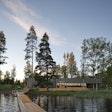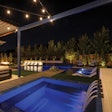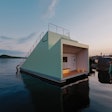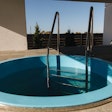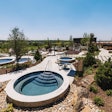
1. What's your overall assessment of the portable spa industry today?
Absolutely it's been a difficult few years in our industry. We've seen ups and downs through our careers - many of us have been in it a long time - however we've seen a downturn like we've never seen before in financing, which has been a big problem. We've always had financing in the spa industry, whether it's been for dealer inventory or for consumer purchases. That has probably been one of the top factors in the slowdown of our industry.
What I'm seeing right now, specific to the dealers, is many of them had been given large credit lines through the finance companies - GE or Textron - then when Textron went out of the industry, it left a lot of dealers without flooring. Unfortunately that happened at the same time the banks were no longer flooring dealers. That's changed the way dealers do business and the way manufacturers will have to do business from now on. We're in that boat. We do not offer flooring, and that's been difficult for us. We're carrying some paper ourselves, which is very costly, and the dealers are carrying their own paper, which is, to them, very costly. That's been a major part of what's been going on in our industry, I feel. It's affecting everything they do, whether it's employees or financing or marketing.
I was doing the math recently and if we're down to half as many retailers in the U.S. as we once had five or six years ago, and the retailers that are left are doing half as much advertising as they did five or six years ago... I've read a lot and I've talked to a lot of dealers who say their traffic is low, but their closing ratio is high. Well, the traffic is low because it's a vicious circle. We're advertising about 25 percent as much as we used to, so people don't hear about our product as much. It's very limited.
2. So it's awareness of the product that's lacking?
Absolutely. Studies indicated, and this is before the recession really started, that people planned to remodel their houses, putting more money into them instead of selling them, not vacationing as much. They were looking to do more things around their homes. That sort of thing always directs someone toward a swimming pool or hot tub. For example, in my position as vice president of marketing, I go out to see dealers and their events, and I was at an event recently on the east coast watching the home show activity. People were walking up and buying hot tubs. They were there to see the home show, not necessarily to buy a hot tub, but that's what they were doing. And every dealer at that show sold a reasonable amount of hot tubs and made that home show profitable. So they're seeing that people still want to buy hot tubs.
But we need to have stronger management of advertising dollars. We need it to be more structured. Dealers need to be much more structured with their advertising versus being willy-nilly about it: "I'll do a home show here. Somebody came into my store today and offered me what seemed to be a great deal on advertising, so I'll go ahead and do that." You need to be more structured. First, that's going to save dealers 10 to 20 percent on advertising, which will work its way right down to the bottom line, and it will hold sales numbers throughout the year.
3. I realize all dealers and markets are different, but is there an optimal media mix you can recommend?
Markets across the country are more similar than different, first off. We all like to think our market is very different, but they're really not all that different. However, what really affects where a dealer might advertise is cost, and that's where the markets might differ a little bit. The small markets will have a more reasonable cable TV ad cost or newspaper cost, where some larger markets like Chicago or Dallas might be very expensive, so dealers would have to look to other areas.
But I think what dealers really need to do is to work with an ad agency of some sort. I believe you have to lean toward the experts, because they'll be able to help you do what needs to be done in your market. They know what's been working well for other retailers like you.
4. Insiders have been marveling at the lack of spa manufacturers going out of business. What's your take on that?
The lack of attrition in manufacturing has been quite amazing. Everybody has been surprised. I think that's solely because manufacturers have been looking to other avenues of distribution. We're creating more avenues. Now, that's not to say that we're moving away from retailers - retailers are the heart and soul of the industry - but there are a number of manufacturers that are going through big boxes, and some manufacturers are going direct through the Internet. I believe that hurts the average retailer, and most of us won't go in that direction. But we all do what we can to survive, and it's been working.
5. Do you see some reasons to be optimistic?
Absolutely. I have talked to a number of retailers, whether they're ours or other prospective dealers. They're at a point where they're tired of being pessimistic. It was easy to be that way a year ago, two years ago, because of the outside influences. But the reality of it is that there are a number of dealers who have been very successful the last couple of years, and that's because they're changing the way they do business. Some dealers are going back to what made them successful in the first place, some owners are going back to being in the store every day, other dealers are bringing on new products in order to increase their traffic. I think when the economy does finally settle, whatever that means, that we're all going to be more profitable. The blind cuts have stopped. Now cuts are more strategic.
The manufacturers have come to understand that we have to develop products that meet the consumers' needs, and right now that's a highly designed product at a very competitive price.
Comments or thoughts on this article? Please e-mail [email protected].
































